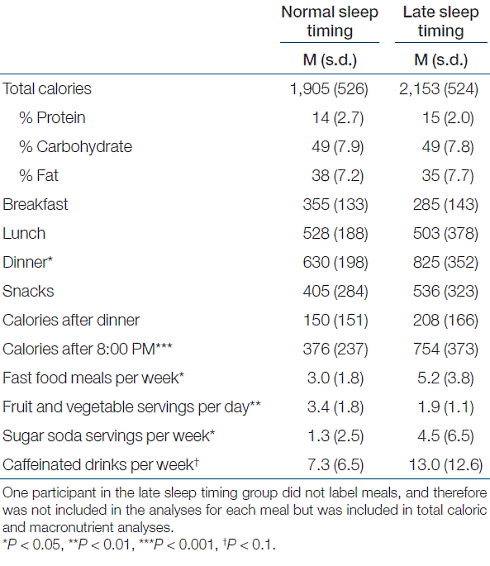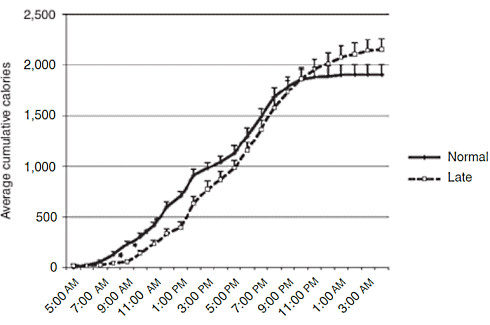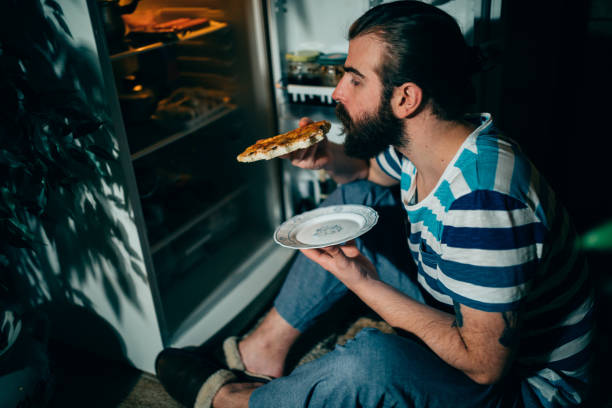For months now here at Herculean Strength, we’ve been extolling the benefits of sorting out your sleep schedule. One of the many beneficial effects improving your sleep can have for men, for instance, is to double their testosterone levels. Yes, you read that right: DOUBLE their testosterone levels.
Another study, from 2011, shows that the early bird really does get the worm, if by “gets the worm” you mean “stays in shape”. By contrast, people who go to bed later, so-called “night owls”, put on weight more easily.
Sleep study
The researchers, from Northwestern University, knowing that sleep duration had already been linked to obesity, set out to investigate whether early birds or night owls put on weight more easily.
The researchers took 52 people aged between 18 and 71 and followed their daily sleeping rhythm for seven days. The researchers also got their subjects to note down what, how much and when they ate.
A little more than half of the participants fell into the ‘early bird’ category, going to bed on average at 0.30 AM and waking again at 8.10 AM, getting six and a half hours of kip per 24 hours.
A little under half of the participants, by contrast, were ‘night owls’, not getting to bed until 3.45 a.m. and waking up at 10.45 a.m. The average night owl therefore got about five and a half hours of kip every 24 hours.
Being night owls seemed to affect this group’s food intake, not just the amount of calories but also the quality of the food they ate.
The night owls ate 248 kcals more than the early birds per 24 hours, as shown in the table below. In addition, the night owls ate less healthily. They drank more soft drinks, ate more fast-food meals and ate less fruit and veg, so it’s hardly surprising that the night owls were fatter than the early birds.

The average early bird had a BMI of 23.7, while the average night owl’s BMI was 26.0.
The graph below shows cumulative calorie intake according to sleep timing. After subjecting the results to statistical analysis, the researchers determined that one of the principal reasons why the night owls were putting on weight was because they were eating later than the early birds, as well as making poorer food choices.

The researchers write,
“evaluation of cumulative caloric intake across the day demonstrated that late sleepers consumed significantly fewer calories in the morning hours, and then steeply increased their intake in the afternoon at which point their caloric intake matched and began to exceed normal sleepers around average dinner time. Caloric intake of late sleepers continued to rise after 11:00 pm but normal sleepers reached a plateau as early as 9:00 pm. This may simply be the result of later sleepers not being awake until a later clock time and thus eating less in the morning and then overconsuming calories later in the day.“
Other studies have also shown that poor dietary patterns are associated with “later sleep timing and diurnal preference”. A study of German schoolchildren, for instance, showed that on their days off, when their bed-time patterns were not determined by the school schedule, dietary choices were significantly worse.
According to the principal researcher Phyllis Zee,
“Human circadian rhythms in sleep and metabolism are synchronized to the daily rotation of the earth, so that when the sun goes down you are supposed to be sleeping, not eating.”
“When sleep and eating are not aligned with the body’s internal clock, it can lead to changes in appetite and metabolism, which could lead to weight gain.”
TRY THIS SUPPLEMENT!
The risk is particularly high for people who work unsociable hours or night shifts.
“It’s midnight, but they’re eating lunch. Their risk for obesity as well as cardiovascular, cerebrovascular and gastrointestinal disorders is higher.”
Fixing your sleep and eating schedule is an important part of the total life transformation we’ll be offering in our upcoming book, Reclaim Your Masculinity, which will be launching soon. Reclaim your masculinity and take control of your life!
For the time being, if you want to know why your bed time, and how much time you spend in bed, matters, read this article now!











